Radical transparency is the motto of the Cus fashion firm, and it does not refer to garments with 'transparency' precisely, but to do things right, from a social and ecological point of view.
"When we approach clothing, we often value it from an aesthetic and economic point of view. We relate to it as if it came out of nowhere, when, in reality, it is the result of human work. We erase the traces of its production”, says Adriana Zalacain, founder of the firm, who trained in Political Science.
About 15 years ago she became interested in work with your hands in various disciplines. “Little by little I approached the world of fashion, it had always attracted me. I kept doing it from a very self-taught perspective, guided by the pleasure that the search for a certain aesthetic produced in me and of a language of its own that went further and was linked to an individual identity search,” Adriana tells Condé Nast Traveler.
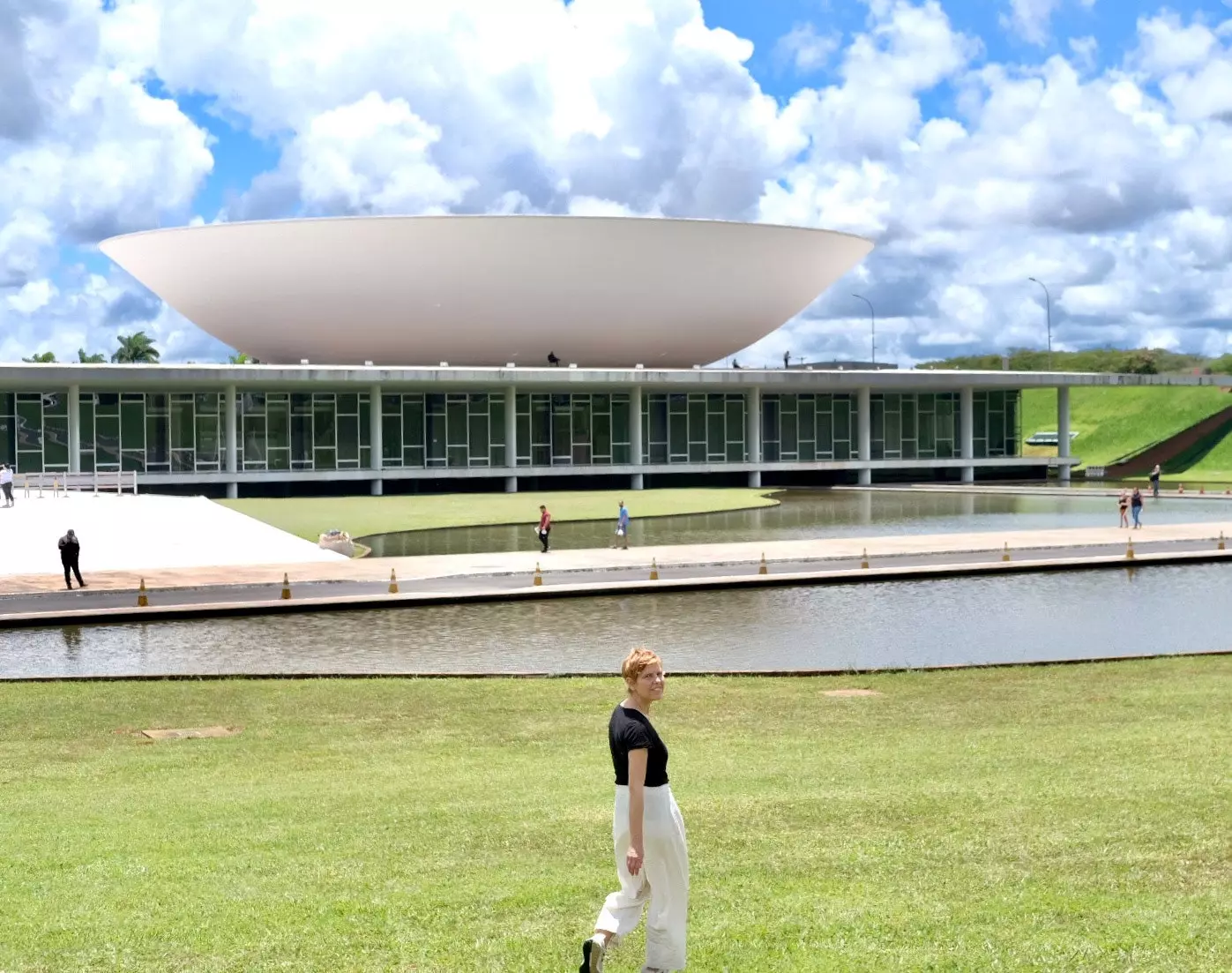
Adriana, creator of Cus Barcelona, in Brasilia.
Cush's pieces They are petroleum-free and use no toxic dyes, and all parts are designed and produced on an ongoing basis, to order. and eliminating the seasons. “The hardest thing, without a doubt, was building a strong sales network. It took me many years, a lot of persistence and determination to achieve it”, she recalls.
"But, like everything that costs, it was a great satisfaction to get it and, in addition, the interaction with the clients was a very nice experience. With the new twist we have given to the project, our sales are now focused exclusively on the end customer”.
A NEW SUSTAINABILITY
Cus was born in 2013 and, from the beginning, environmental responsibility has gone hand in hand with social commitment and this has resulted in the use of sustainable fabrics and recycled, and local and responsible production. Over the years, Adriana has been shaping a very personal project where she channels her political and aesthetic concerns.
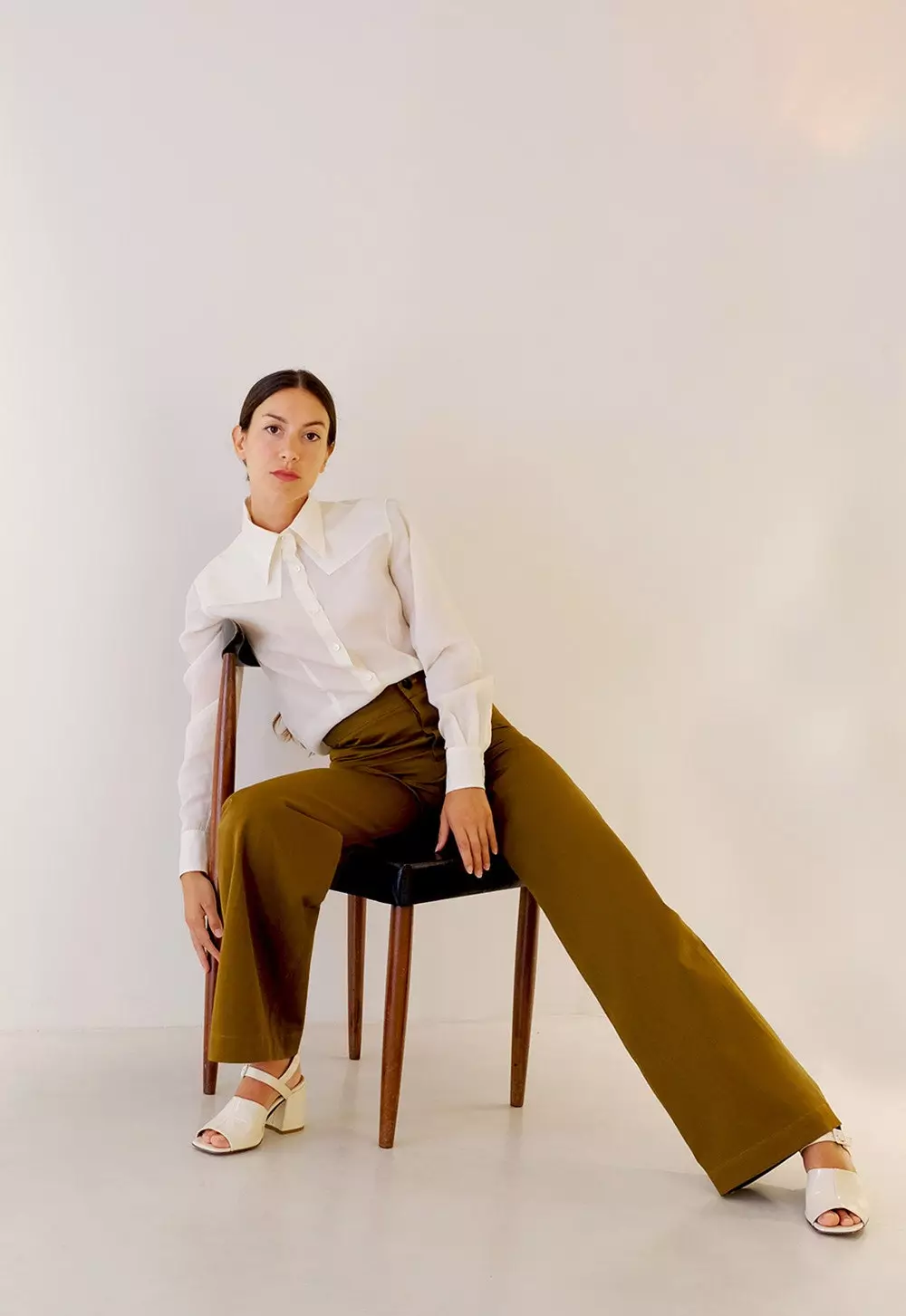
Look of Cus Barcelona.
By incorporating the production model based on demand, the brand reduces stock and leaves aside the collection system, betting on sustained production work throughout the year. The digital store is the main sales channel, where an outfit is presented as a launch.
The garments are made once the sale is over, largely with remnant fabrics, and the proposals are completed with the Essentials, a selection of basics for women and men destined to last over time.
Respect for the environment was always present in the idea: “In the DNA of Cus sustainability is an unquestionable attribute that has been with us from day one”, underlines Adriana, who has been inspired by many other fashion firms. “I always like to see what Lemaire, Samuji or Nanushka do. But also continue the work of artists like Alicja Kwade, designers like Ronan Bouroullec or illustrators like Rosie McGuinness”.
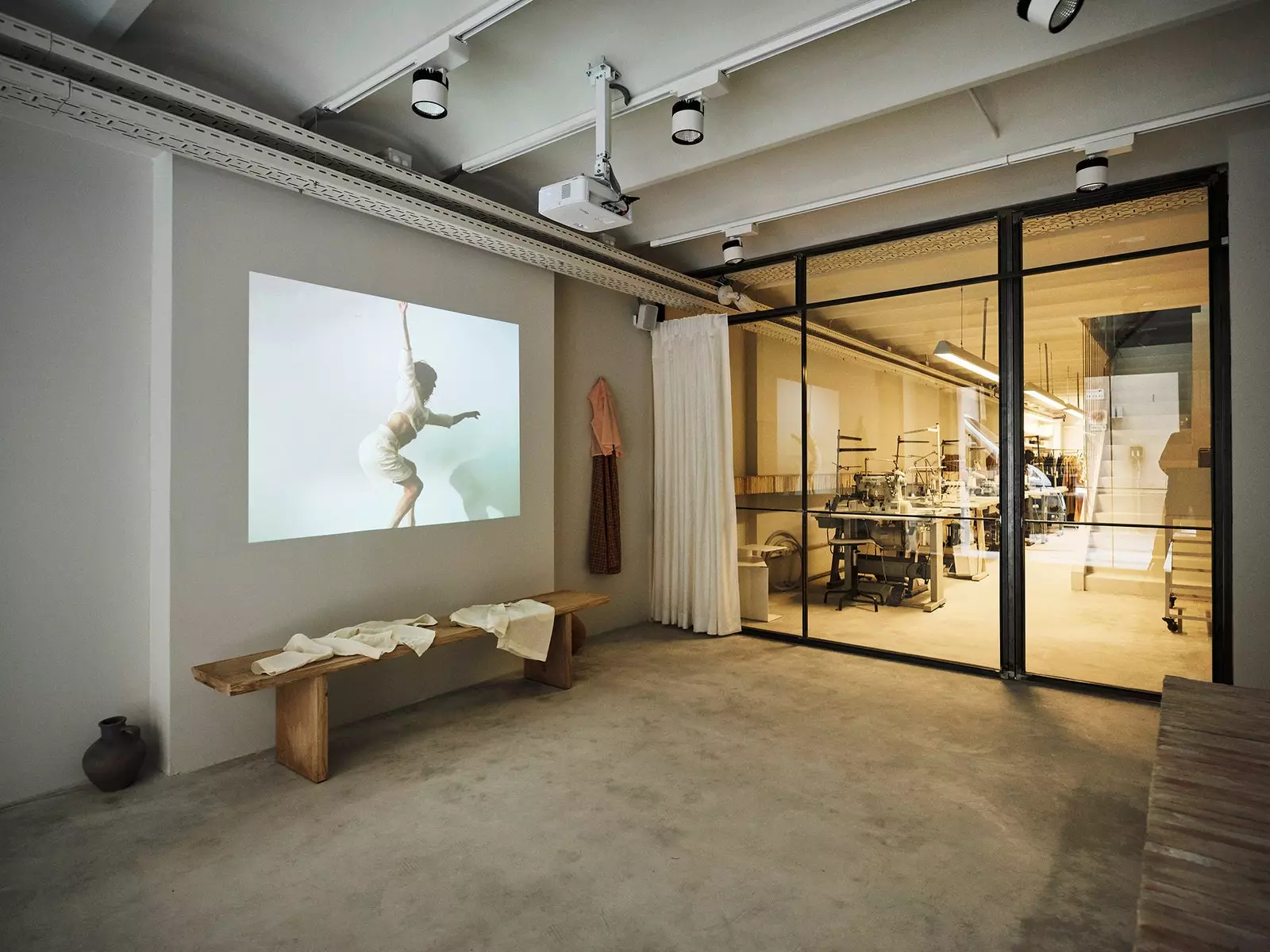
Seneca 8, sales space, workshop and showroom of Cus Barcelona.
And she adds: "Lately I find tremendous inspiration in the word. Literature is a place to find and, from it, I come up with narratives that serve as a common thread for the scenarios of the campaign photos”.
Many (almost all) firms today talk about sustainability, and Cus has been trying to redefine or expand the meaning of this word for some time. “The radical transparency in the production process has become one of the main axes of this desire to go further in relation to this concept. We continue to use 100% natural fabrics and without synthetic fibers, our fabrics are petroleum-free, and therefore they are 100% recyclable”, says Adriana.
Organic cotton and tencel are two of the iconic fabrics of the brand, which also works with wool, linen and Eco-vero. Cus dispenses with synthetic fabrics to achieve garments that can be recyclable and, in the long run, biodegradable, along with the commitment, as we said, to eradicate oil from the textile industry.
"I think we are beginning to see changes in our mentality in relation to consumption," he reflects. There is a sector of the population that no longer wants to buy clothes low cost, who is willing to have less quantity in exchange for having a little more peace of mind. When you know how low cost products are made and you are aware of the consequences, You can no longer go back and pretend you don't know anything."
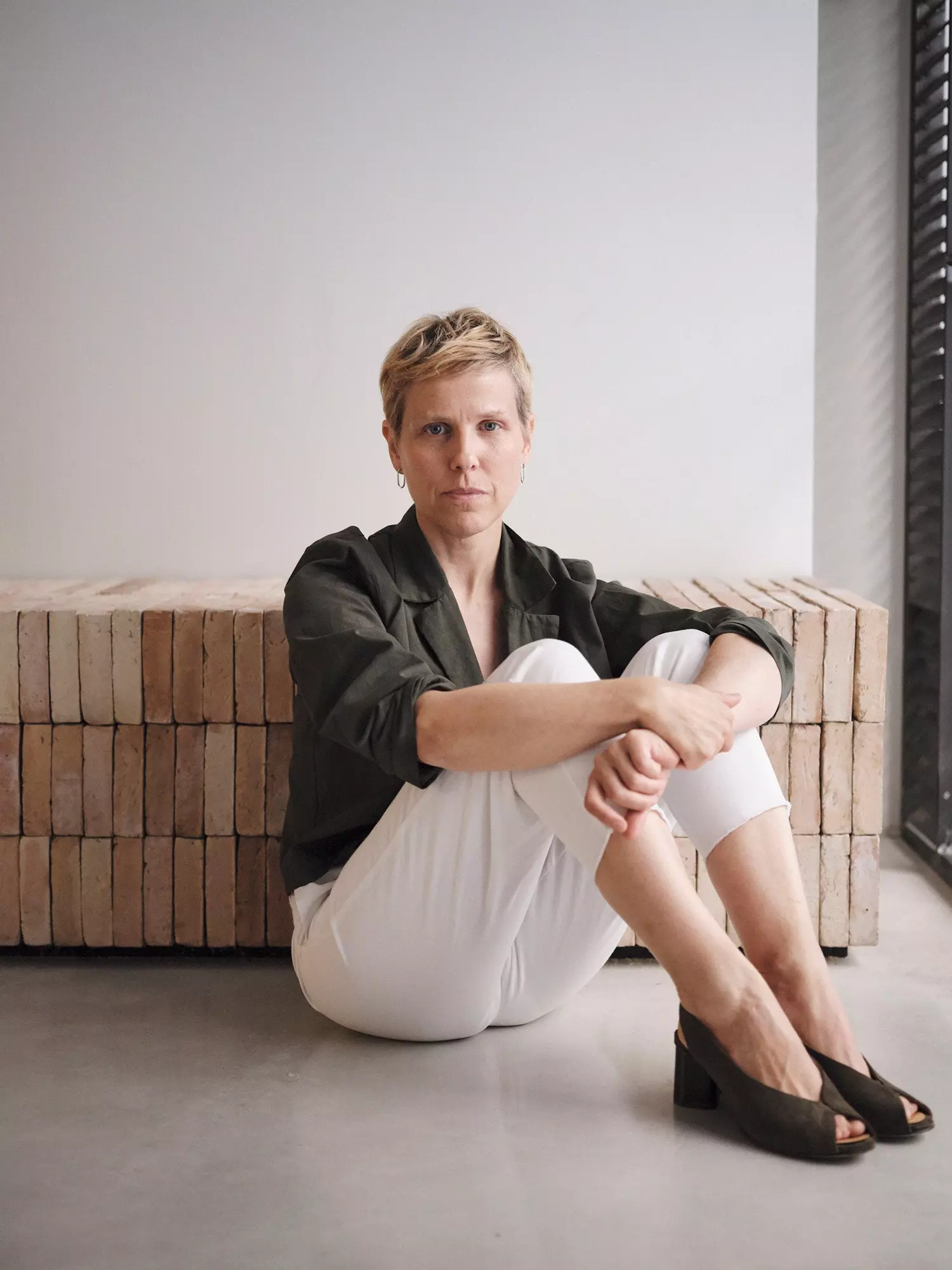
Adriana Zalacain, creator of Cus Barcelona.
Regarding the packaging, it is also fully recyclable. “In relation to shipments, we always advise our customers to consume responsibly and we maintain very direct contact with them in order to minimize returns as much as possible”, he adds.
Regarding crafts, it is a fundamental axis: “Crafts are hands, and how they are handled to achieve a product with excellence. The dedication, affection and delicacy that are deposited in those hands at the moment of creating a garment, without a doubt they end up imbuing the final product with a totally exclusive beauty”.
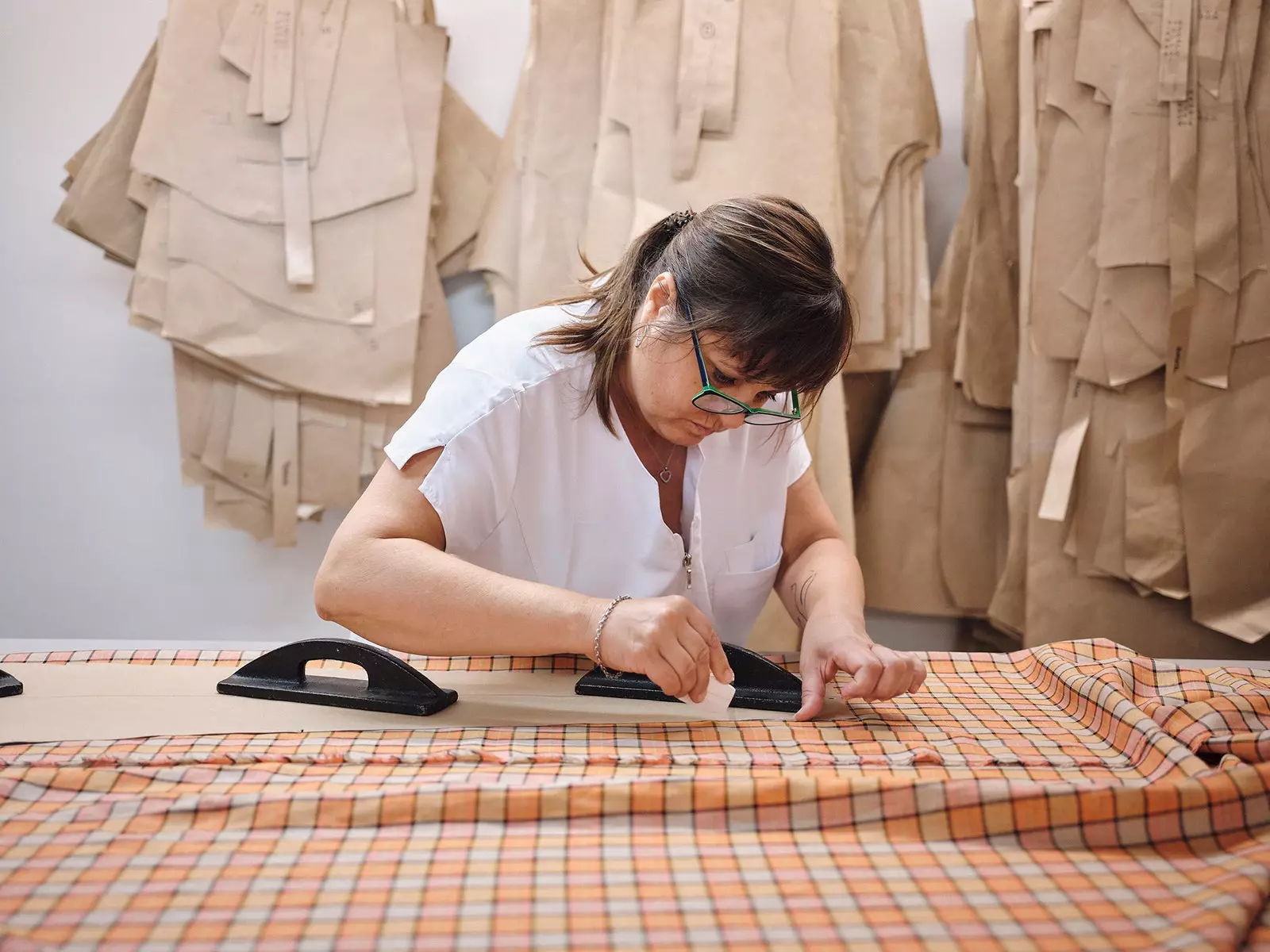
Cus Barcelona workshop, in Seneca 8.
Cus is made up of a small but solid team in constant communication. “There are two people who are in charge of the workshop, Rosario Moreno and Isabel Montilla, and Sabrina Kohan, who works hand in hand directly with me. We also have external collaborations for graphic design, press and marketing”, explains the businesswoman.
Beyond sustainability, the aesthetic concept of the garments is reminiscent of Nordic minimalism with Mediterranean touches. “It is always difficult for me to define my own aesthetic because I have a way of approaching it totally intuitive and very primary. Still, I think I see clean, simple lines and Mediterranean colors. As well as a search for a certain harmony and coordination”, she tells us.
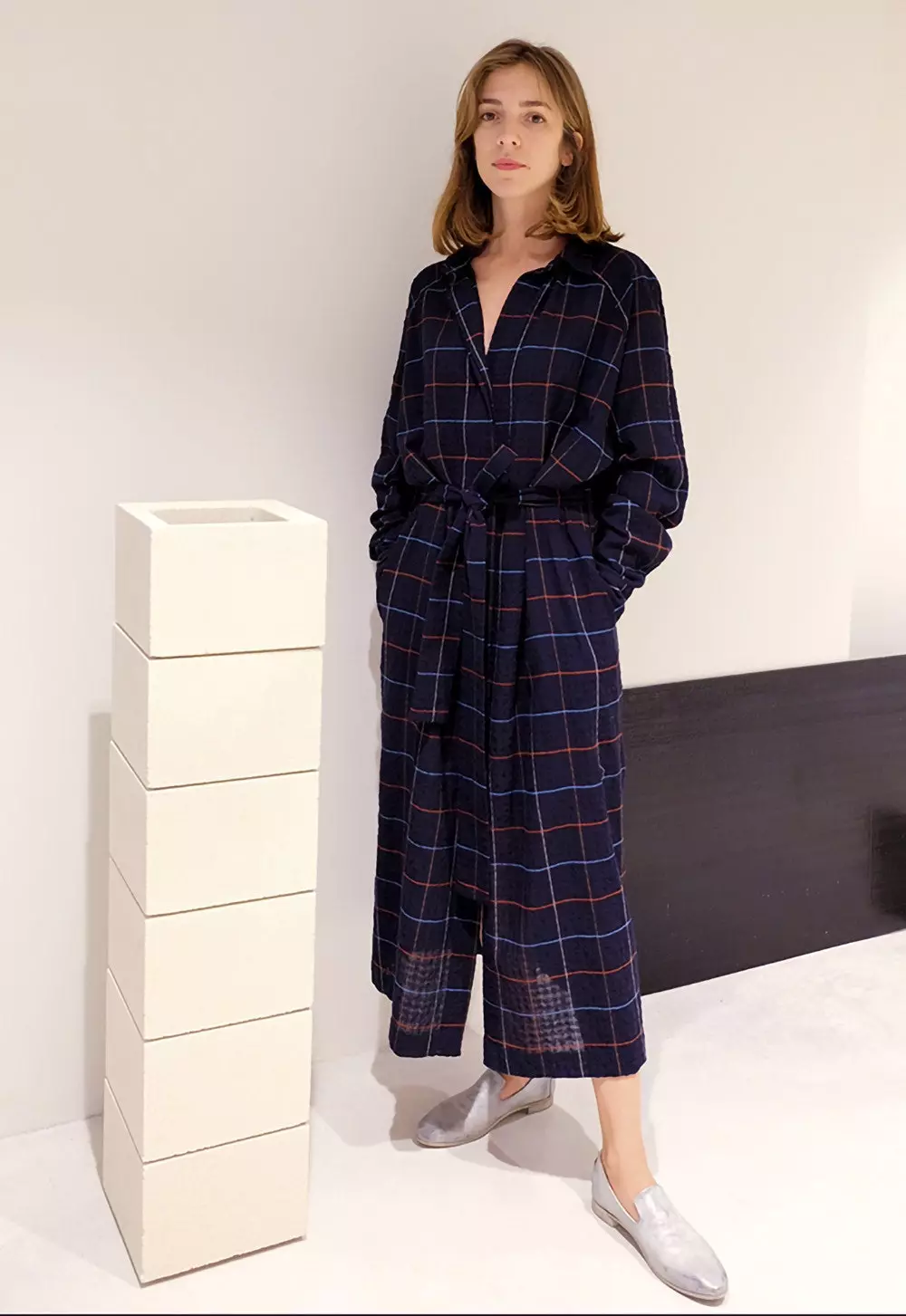
Look of Cus Barcelona.
COSMOPOLITAN AND CONSCIOUS CONSUMERS
“We have clients who have followed us since the beginning, most already know the type of garment and concept, and buy on-line from Germany, Holland and Belgium mainly. And those who are getting to know us now greatly appreciate being able to see the work space and process of the garment, as well as the design. It is a pleasure to have such a direct and personalized treatment", Adriana emphasizes.
her space, Seneca 8 (Carrer de Sèneca, 8, Barcelona), is a workshop, studio, shop and space for expression, All at the same time. It is open from Monday to Friday from 10am to 4pm, and on Wednesdays from 10am to 8pm. "It is a place that adapts to garments and lets them breathe. The lines of the interior design are very simple and neutral so that it is the clothes that stand out".
"Despite prioritizing the role of the garment -says the designer-, I did want to give the design of the space some identity wink. I did it including a material that was typical of the Mediterranean, something that she slightly broke the neutrality to explain, from a material, something about the place where it is located”.
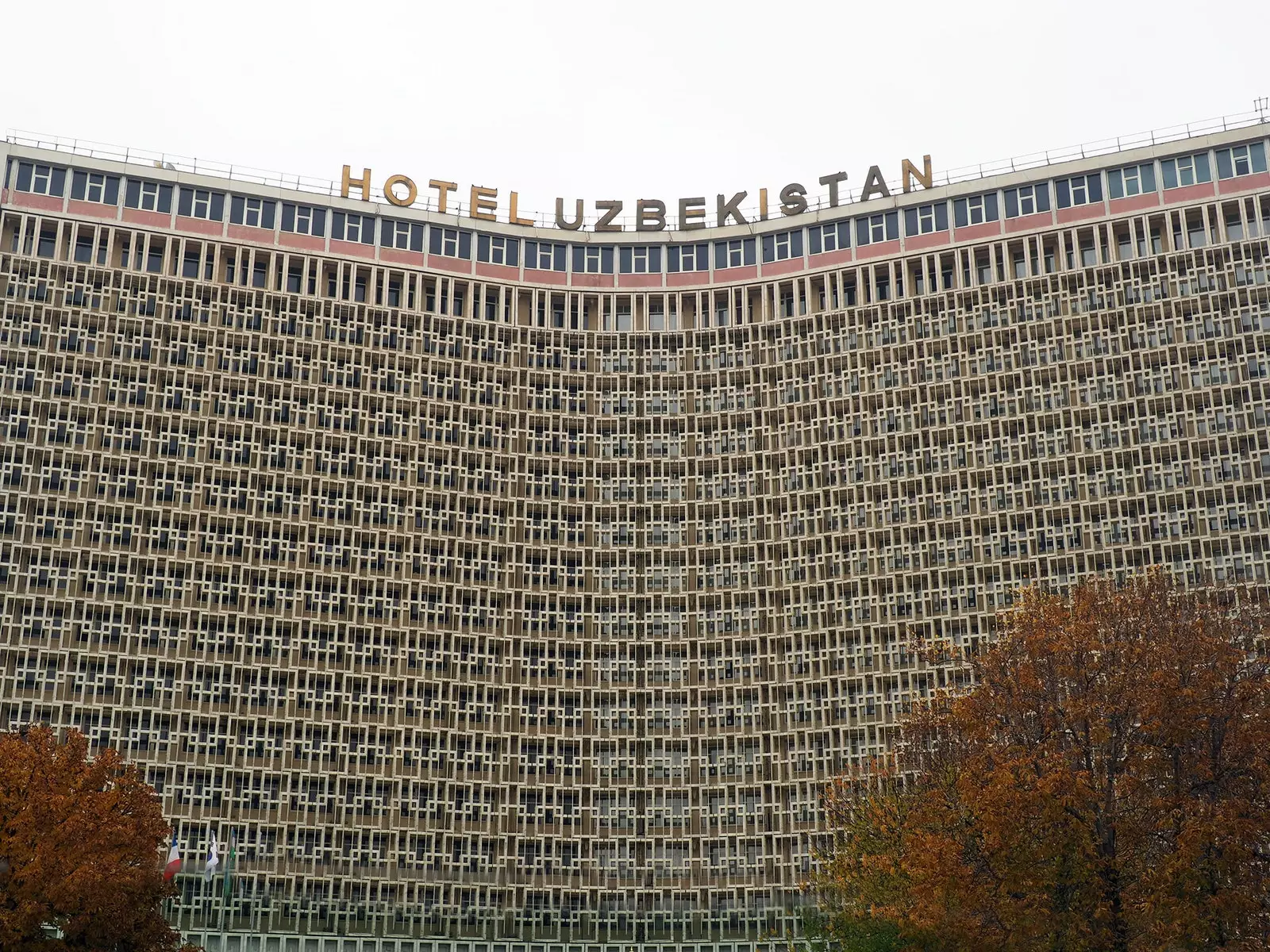
Photo taken by Adriana on a trip to Uzbekistan.
That is why they decided to use some pieces of clay and sand, called tova, to build some elements, such as benches, shelves or kitchen furniture. “These parts are manufactured in Banyoles, a wonderful city to which I am closely linked, and which is 150 km from Barcelona. The production of the pieces is completely handmade and the manufacturing process is carried out exactly the same as it was 200 years ago. An absolute marvel."
THE TRAVELS OF ADRIAN
“My favorite destinations are those that are not very crowded and of singular beauty, with contrasts that surprise and disorient me. The last ones that have captivated me have been the cities of Tashkent and Buhara in Uzbekistan, and Brasilia in Brazil”, the designer tells us.
“Of the Uzbek cities I was fascinated the mixture of post-Soviet culture with the Muslim culture of the country. In addition, the mix of very austere settings, with other very baroque ones, continually impacted me. It was also very nice to see how Uzbek society lives Islam very openly. As a woman, it was very exciting to see women shine on their own and they move with autonomy in their decisions. There is a very open experience of religion”, she adds.
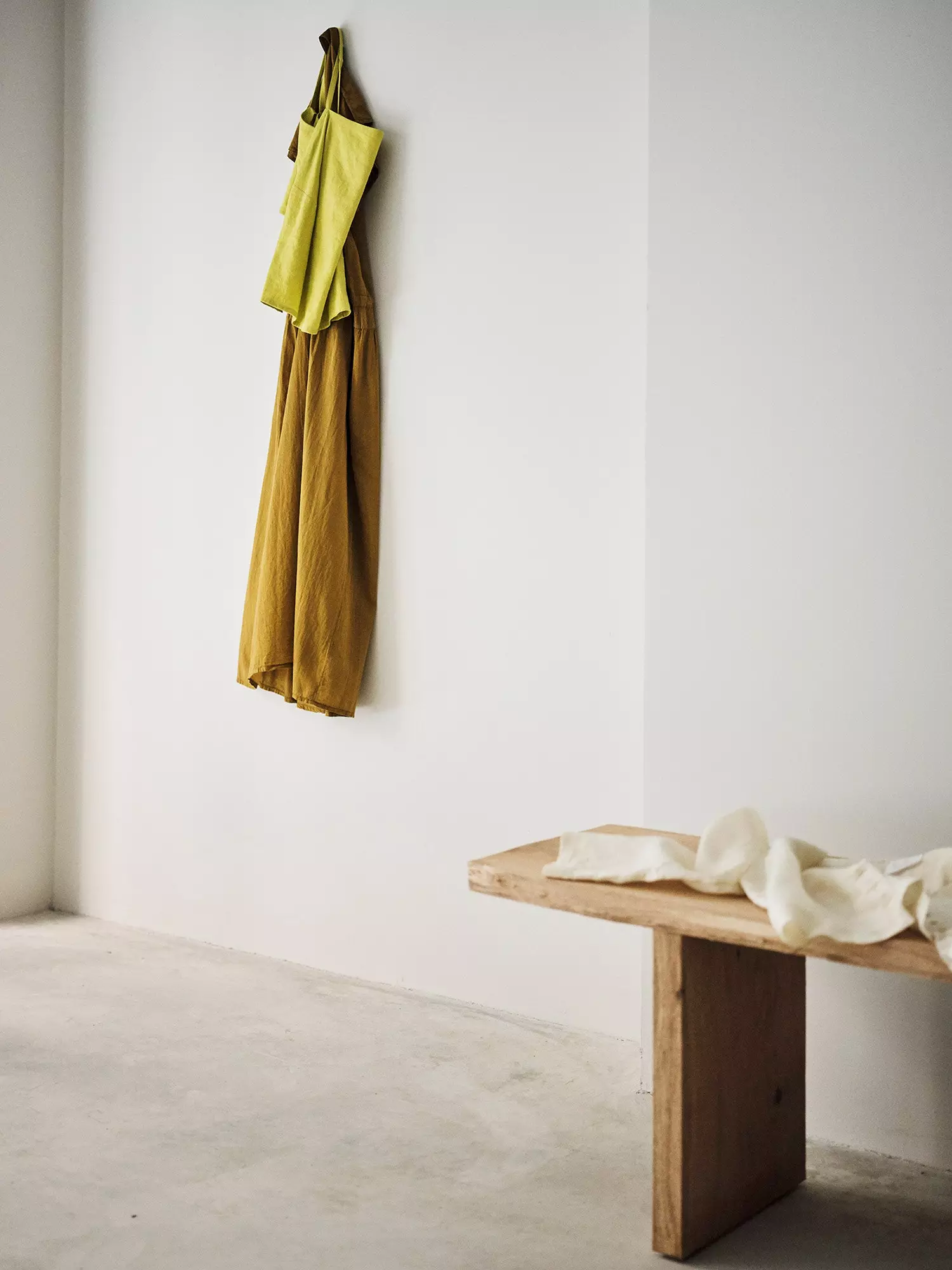
Seneca space 8.
"As to Brasilia, I just got back from a trip to this wonderful city, which had always captivated me as a destination. My expectations were more than met. Within minutes of landing in the city, I knew clearly that I was going to fall in love with her. There are few cities in the world like this, it is very 'Martian'. Everything is laid out and preserved just as it was designed in the 1960s by architect Oscar Niemeyer and urban planner Lúcio Costa. Its beauty is majestic and colossal, each building is a work of art, even simple residential buildings or subway or bus stations.
When you travel, do you like to go shopping? “Yes, I love shopping when I travel. In Brazil I was in the stores of Osklen, a great and well-established Brazilian brand. In addition, I also discovered another very interesting one, Haight, with elegant and organic lines. Secondly, A few months ago I was in Amsterdam visiting clothing stores vintage from the 60s to the 80s. They are spectacular, they are full of treasures that inspire me enormously to design”.
